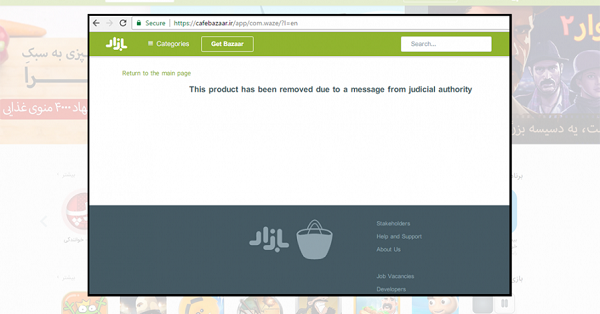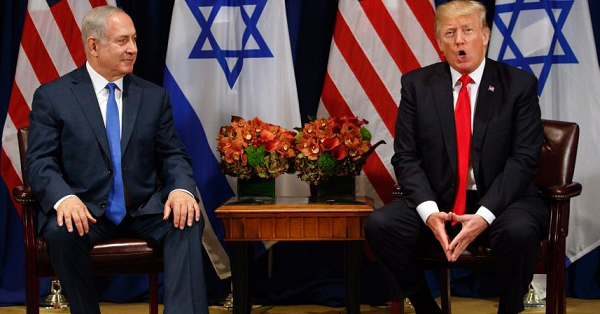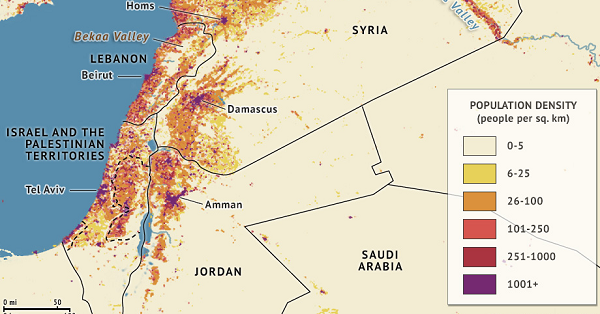News Summary:
The US and North Korean leaders exchange insults and threats, Israelis help Mexicans after a deadly earthquake,
Iran tests a new missile that can reach Israel and
Israel ‘probably’ was behind an attack on a Hezbollah arms depot in Damascus
making top stories in today’s Hebrew newspapers. And, a recap of the key statements by US, Israeli,
Palestinian, Egyptian and Iranian leaders at the UN General Assembly.
On Friday,
Iran’s Rouhani revealed a missile with a range of 2,000 km (1,200 miles)
– capable of reaching Israel - and announced that his country 'will not seek permission from
anyone to defend' itself. On Saturday, I
ran announced it had successfully tested – and would keep developing its arsenal
despite U.S. pressure to stop.
Israel called the test a 'provocation.’ Trump said it showed the weakness of the Iran nuclear deal. According to the
Iranians, since they aren’t developing nuclear weapons then they are allowed to develop ballistic missiles.
Israeli analysts mostly agreed that the test was a message to Trump. [See Commentary/Analysis below.]
And here are the UN General Assembly speeches and statements leading up to the Iran ballistic missile
test:
In his speech at the UN General Assembly last Tuesday
Trump slammed North Korea and said the nuclear deal with Iran was terrible. In
his speech, Iranian President Hassan
Rouhani said his country will not be the first to breach the nuclear deal, and
warned the US against doing so, saying that Iran would respond: "The options that we say we have at our
disposal ... will never be going towards nuclear weapons...Iran has never sought nuclear weapons, will never
seek nuclear weapons, is not now seeking nuclear weapons."
Trump said that he made his decision about whether to continue with the Iran
nuclear deal, but he
kept his decision secret, even from advisors.
Top Democrats asked the Trump Administration for proof that Iran wasn’t
complying with the nuclear deal. U.S. Secretary of State Rex
Tillerson said that Iran was ‘technically complying' with the deal, but it
remains a destabilizing force.
Meanwhile
Netanyahu told the UN General Assembly Tuesday that Iran should know that
threatening Israel puts one in peril. Netanyahu also made a joke saying he intends to visit Antarctica one day
“because I’ve heard penguins' enthusiastically support Israel,” to which I
ranian officials and civilians flooded the Internet with pictures making fun of the
Israeli premier; ‘Even penguins in the south pole can’t bear the shame of support for the Israeli entity
which murders children.’ Outside the UN building,
some 100 Jews and Palestinians gathered in the rain to protest the cozy
relationship between Netanyahu and Trump.
Speeches and statements about peace:
An hour after Netanyahu's speech to the UN General Assembly Tuesday, Egyptian President Abdel Fatah
al-Sisi addressed Israeli citizens, calling on them to support their current
leadership as it works to advance peace, telling them that the opportunity for peace in the region may not
again arise. On Wednesday, Trump told Palestinian President Mahmoud Abbas: I will give my heart and soul to
achieve an Israeli-Palestinian peace deal. Hours later,
Abbas told the UN: We'll give Trump's peace efforts a chance, but the UN bears
an obligation to end the occupation. He also said that if Israel destroys the two-state solution, Palestinians
will demand full equal rights for all inhabitants of historic Palestine.
Trump told Abbas he needed more time for his American peace initiative.
Features:
'A story of survival and rebirth' The Palestinians who didn't flee during the Nakba
Historian Adel Manna tells the story of the 120,000 Palestinians who remained in Israel in 1948 while 750,000 were
driven out. (Dalia Karpel,
Haaretz+)
Searching for the lost firman
An earthquake in 1546 inflicted great destruction in the Holy Land but also opened up space at the foot of the
Western Wall. Researchers have spent decades looking for the Ottoman-era decrees that gave Jews the right to pray
there. (Nadav Shragai,
Israel Hayom)
Why Some Israeli Mothers Raise Their Sons as Cowards
In the 18 years between the ultrasound and conscription, mothers fear that their boys will serve in combat units.
In her new book, psychoanalyst Hanni Mann-Shalvi says this concern can unconsciously lead them to repress their
son’s masculine qualities. (Omri Zerachovitz,
Haaretz+)
The father, the son and the Jewish spirit: Saving synagogues where there are no more Jews
In a Slovak town with no Jewish residents, a father and son restore a 200-year-old synagogue – and preserve the
history of the Jewish life that once flourished there. (Ofer Aderet,
Haaretz+)
Israel's Booming Medical Marijuana Industry Now Offers Hope to Autism Patients
Thanks to the country’s liberal research policies, two studies are progressing that could dramatically improve the
lives of autistic kids and their families. (Dina Kraft,
Haaretz+)
Commentary/Analysis:
Rosh Hashanah as the battle of Netanyahu vs. Soros (Avraham Burg,
Haaretz+) Soros is a symbol of the holiday and the embracing of the 'other,'
while Netanyahu is the type who says Israel must protect itself against 'wild beasts.’
The timing is not coincidental: the Iranian missile test was intended to convey a message to Trump
(Yossi Melman,
Maariv) While the deadline for a decision on the fate of the nuclear agreement
is approaching, Tehran has made it clear that they continue to do their own thing. Israel should be concerned
about progress in Iran's missile program.
Iran shows its defiance of the US, carefully (Ron Ben-Yishai,
Ynet) While Iran's defiant stance against the US may seem provocative,
especially after they unveiled a new missile and its test footage just days after Trump's threat to scrap the
nuclear deal over their aggressions, a closer look attests to it being more calculated and risk averse than it
appears to be at first glance.
Stop the Forced Uprooting of Bedouin Communities From the West Bank (
Haaretz Editorial) Uprooting Bedouin communities and replacing them with new
Jewish settlements is against international law, and the Israeli High Court of Justice must stand firm against
it.
On the eve of Rosh Hashanah one can remove the glasses of fear and anxiety (Alon Ben-David,
Maariv) There are enemies around us, but none of them can threaten our very
existence. There are also many partners around us who will be happy to work with us, as well as a few
potential allies.
Israel’s message to U.S. Jews: If you’re against the occupation, you’re not welcome (Libby
Lenkinski,
Haaretz) With the Jewish Agency now surrendering to the extremist right-wing
witch hunt, more and more of Israel’s institutions are closing their doors to U.S. Jewish progressives. We
must refuse to be excluded.
'Like-minded' dictatorships and the UN (Elliott Abrams,
Israel Hayom) Too many U.N. member states are dictatorships that engage in
horrible human rights violations, and they stick together, united in their heinous acts. It's time for
democracies to better counter their actions.
Israel Simulates War With Hezbollah, but Iran Will Orchestrate Next Conflict in Lebanon and Syria
(Amos Harel,
Haaretz) Israeli army and political leadership's calculations can't help but
change
Palestinian President Abbas Puts One-state Solution on the Table (Jack Khoury,
Haaretz) The humanitarian crisis in Gaza and despair in the West Bank in the
face of massive settlement construction have left the Palestinian president with few options and his back
against the wall.
Trump’s Mideast policy: No motivation, no courage (Colonel (res.) Eldad Shavit,
Yedioth/Ynet) The sigh of relief in the Middle East following the US president’s
decision to begin his first foreign trip with a visit to Saudi Arabia and Israel has been replaced with
disappointment and fear that the US administration is incapable of creating a fundamental change in America's
involvement in the region, and is perhaps unwilling to do so.
Netanyahu's UN speech not only aimed at the average Israeli, but those mulling whether to indict
him (Yossi Verter,
Haaretz) The PM's address may have missed Israel's prime time TV.
Taking stock and looking ahead (Isi Leibler, I
srael Hayom) Israel is one of the greatest success stories of all time. The
formerly exiled and long-persecuted nation has evolved into a thriving, modern industrial state that
will undoubtedly be able to triumph over the challenges ahead.
This Year for Rosh Hashanah, I'm Divorcing Netanyahu's Israel. Settlements Included (Bradley
Burston,
Haaretz+) Look back to last Rosh Hashanah, and tell me that this is the same
world, the same Israel, the same America. Tell me that in the age of the Trump and Bibi show, the sewers have
not opened full.
Fight the tyranny (Dror Eydar,
Israel Hayom) Once the group that feels ownership over the state lost
exclusive control, it began using the courts to override its lack of democratic
power • The High Court says to the legislative and executive branches: You think you decided
something? Think again.
The Israeli Right Will Bring About Justice for the Palestinians (Gideon Levy,
Haaretz+) When the right gathers the courage to declare a one-state solution,
the world will gain the courage to declare a war on its regime.
Coexistence, not coercion (Eran Bar-Tal,
Israel Hayom) Freedom cannot be obtained by force. As long as freedom is
trampled on in Israel in the name of minority rights, life for those very same minorities will be
unbearable.
This year’s least shameful politician: An ultra-Orthodox homophobe (Anshel Pfeffer,
Haaretz+) The MK thrown out of Shas for attending a same-sex wedding is no
poster-boy for ultra-Orthodoxy tolerance of the LGBT community. But he did the right thing, unlike Trump and
Netanyahu who headline a year of shame.
The Egyptian maestro and his Palestinian marionettes (Alex Fishman,
Yedioth/Ynet) Hamas may have given up the Gaza administrative committee, but it
will keep running the strip. The announcement, which was used as bait to bring the PA delegation to Cairo,
will allow Abbas to lift the sanctions and renew the economic aid to Gaza. This is an Israeli interest
too.
Review - Conan in Israel: Can a comedian cover a 45-sided conflict in 40 minutes? (Brian Schaefer,
Haaretz) The special episode on Israel showed a comedian on a mission.
If North Korea can do it, so can Iran (Alex Fishman,
Yedioth/Ynet) Great Western experts have been explaining to Israel how
complicated it is to move from an accumulation of fissile material to a nuclear warhead on a missile—and here
comes Pyongyang and proves them wrong. Now, IAEA inspectors are searching for Iranian nuclear experts at
Iran’s supervised facilities; but they’re not there—they’re in labs in North Korea.
'Nazis in the Reichstag': All Eyes on Far-right AfD Party as Germans Vote in National
Election (Ofer Aderet,
Haaretz) Sunday's election will bring into parliament dozens of ultranationalist
representatives that call of Germans to stop feeling guilty for the crimes of the Nazis.
The return of racism: the trend of nationalism sweeps the world and reaches Germany as well (Prof.
Moshe Zimmerman,
Maariv) The most important outcome of the elections today is not related to who
will govern, but the fact that the far-right party has entered the parliament. Israel closes its eyes to these
parties and even flirts with them.
A year of security challenges (Maj. Gen. (ret.) Yaakov Amidror, I
srael Hayom) The volatile dynamics of the Middle East require Israel to remain
highly vigilant • Israel's advanced air defenses will thwart most of Hezbollah's threats to strategic
infrastructure, but we must also ensure the next conflict ends with a decisive victory.
Israeli Army's 'Purity of Arms' Doesn't Only Apply to Secular Soldiers (Daniel Goldman,
Haaretz+) Those who make outrageous claims about integrating religious soldiers
into the Israeli army must be reminded that every soldier, religious or not, has his own moral
conscience.
Trump puts Iran back in North Korea's corner (Boaz Bismuth,
Israel Hayom) After eight years of Obama speeches and failures, Trump's speech
at the U.N. General Assembly signifies that new days are upon us.
The storm over the Wailing Wall is the way for Reform and Conservative Jews to maintain their
power (Caroline Glick,
Maariv/
JPost) We must understand that the American Jewish community is in a crisis of
difficult identity and that the leaders of the streams, especially the Reform and Conservative movements, have
long since lost their way.
Netanyahu Refuses to Talk to Us. But We American Jews Won't Be Silenced (Rabbi Rick Jacobs.
Haaretz) While Netanyahu cuts us Reform Jews out, he payrolls those who spew
hatred towards us. But we won't give up on Israel, equality or democracy. And we will continue to demand our
rights.
Relations between Israel and US Jewry must be mended (Yael Patir,
Yedioth/Ynet) The Jewish American public has the best interest of the Jewish
people’s homeland in mind, but the days in which being pro-Israel means blindly supporting the Israeli
government’s policy are over.
Interviews:
‘Anti-Semitism has been cleverly repackaged'
U.S. Ambassador to Israel David Friedman says, "We have to put the emotional issues aside" if we are to
resolve the Israeli-Palestinian conflict • His main goal as ambassador is to "manage a very robust, complicated
relationship, like two family members." (Interviewed by Naama Lanski in I
srael Hayom)
Prof. Shlomo Ben-Ami gave up: "Even with a left-wing government there wouldn’t be peace"
The man who was foreign minister at the end of the Barak government breaks a long silence in a rare interview
and presents a gloomy picture: The Palestinians missed an opportunity that would not return and Oslo hurt more
than it helped. (Interviewed by Eyal Levy in
Maariv Magazine)
Interviewer: Why did the Oslo Accords cause us trouble?
Ben-Ami: "Just as the Palestinians did not treat Oslo as something clear, we didn’t either.
Peres, even after four years, objected to a Palestinian state, and always asked: 'What do we need it for?’
Rabin spoke of something less than a state. When we came to negotiations on the final status agreement, we saw
the reference in the Oslo Accords. There was no doctrine of a permanent agreement. The ambiguity caused the
parties to determine
fait accompli in order to influence the nature of the arrangement in the future:
the Israelis by building settlements and the Palestinians through terrorism. You created what Kissinger liked
to call 'constructive ambiguity.’ We came to negotiations on a final-status agreement on the assumption that we
are going to solve the problems of 1967. They came in order to solve 1967, but also 1948, the refugee question,
etc. Therefore, the Clinton Plan is, in my opinion, the most extreme border that an Israeli government can
reach, and we didn’t succeed. Arafat pushed everyone into the abyss and it did not even convince him that on
the other side Sharon was about to be made prime minister."
Interviewer: And in a sharp transition: We did not talk about Gaza.
Ben-Ami: ”We are not acting properly with Gaza. We have to give space for development, a port
with international supervision. An atmosphere of change. The siege is leading nowhere. I heard experts say they
are stronger today than in Operation Protective Edge [2014 Gaza War - OH], so why do it? I asked Aharon
Yariv once, ‘When did you understand that Egypt was interested in peace?’ He replied: 'When they rehabilitated
the cities of the (Suez) canal.’ You don’t rehabilitate cities so that they can be destroyed. Hezbollah's
deterrence is our ability to destroy Lebanon, not the ability to destroy them. Let them develop. This is good
for the interests of the world and for our international image. And by the way, the Palestinians have a new
discourse: how to revive the national movement outside the two-state paradigm. The discourse (is) in the
academic community and in the large think tanks. They will focus on the struggle for human rights, equality.
There is an acceptance that there will be a separation in the foreseeable future and therefore they need to
direct energy into another dialogue.”
Interviewer: You also don’t expect change?
Ben-Ami: ”The change can only come from a huge shock, a big war, a mega-terrorist attack on
the scale of September 11. Something almost apocalyptic that will change the head and create a necessity for a
breakthrough with the Palestinians. I don’t see a leader growing in Israel that will take care, not only of his
political base, but also will be able to lead to places that the political base didn’t dream about.
Ben-Ami knows that an extreme move is much more difficult today. The changes in Israeli
society are sharp, but he predicted them in 1996, when Netanyahu defeated Shimon Peres in the elections for
prime minister.
Ben-Ami: "On television, I said, 'The victory of Jerusalem over Tel Aviv,'" he recalls.
"Jerusalem as a metaphor for Judaism and Tel Aviv as a metaphor for secular, progressive, left-wing Israel.
Bibi had a big part in that - don’t forget what his election slogan was."
Interviewer: Peres will divide Jerusalem.
Ben-Ami: ”A more important slogan was 'Bibi is good for the Jews,' not for the Israelis, not
for the state, but for the Jews, so the emphasis is on Jerusalem. The secular, Zionist revolution has lost
momentum and was replaced by the national religious ones. The secular Zionist movement, the Labor Party, had no
response. Add to that the way the Israelis see the peace process - ‘We gave (them) everything and they made an
intifada.’ This is the narrative that pushed to the right, and sometimes I wonder about Netanyahu's anger
against the elites. There are new elites and they are more Mizrahi, religious. They determine the spirit of the
time and the period."
5 soldiers talk about the year in which they became heroes
A group of IDF soldiers recall incidents that brought them face to face with terrorists and in which their
bravery helped them neutralize the attackers and save the lives of their comrades • They credit their
instincts, training for their rapid response. (Interviewed by Shlomi Diaz in
Israel Hayom)






